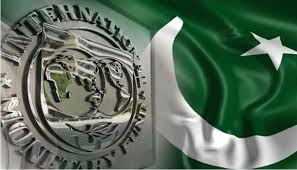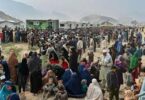The International Monetary Fund (IMF) has expressed interest in talks with Pakistan for a new loan program. During a recent media interaction, the IMF’s Director of Communications Julie Kozack told the media that IMF authorities have expressed interest in a successor IMF-supported program to resolve Pakistan’s fiscal and external stability challenges and lay the foundation for inclusive growth.
According to her, the IMF stands ready to engage in program discussions, about which both parties have already reached a preliminary staff-level deal last month. The global lender praised Pakistan’s central bank and outgoing caretaker government for strong program implementation and hoped the new government would continue its efforts to stabilize the economy.
Pakistan’s current short-term loan program with the IMF ends this month and the government faces problems meeting the balance of payments in the midterm. Henceforth, the country and its leaders have no solution except to take new loans to pay the previous baggage of the global lenders.
Presently, the country faces long-held problems of fiscal mismanagement, irrational policies, and poor governance that caused a vicious cycle of mass circular debt, economic slowdowns, and low foreign reserves that require frequent injections of foreign loans/ aids from the global lenders and friendly nations to provide temporary relief to the dying economy. Although the recent caretaker setup significantly contributed toward the rescue and revival of the sick economy, the country was due to receive the third and last tranche of existing standby agreements worth $1.1 billion this month.
Despite significant improvement and economic stability, the Shehbaz-led newly elected administration seeks cooperation from the International Monetary Fund (IMF) and intends to initiate a new long-term program worth $ 6 billion or more to meet its urgent payment needs and to put new vigor into the national economy which marks sustainable growth and bring prosperity to the nation.
Presently, such an arrangement with the IMF is of utmost importance to consolidate the economic gains so far made by the South Asian economy in the past year. With the new IMF program, the international institutions and foreign investors will have more trust in the country and the government will be able to move forward on the national development agenda with more ease and confidence.
Historically, Pakistan’s economic issues have always been an unceasing rigmarole of temporary successes and repeated failures that outcomes mostly ended up with zero-sum results for the country and the public as well. The country grappled with pressures on domestic prices, external and fiscal imbalances, exchange rates, and foreign exchange reserves. High inflation, global monetary tightening, climate-induced catastrophic flooding, and continued political uncertainty largely exacerbated the situation and conversely affected the government places aimed at consolidation of the economy.
After two consecutive years of stellar growth, Pakistan’s economy largely contracted in the previous fiscal year. Weak agricultural performance, supply chain disruptions, and reduced private consumption contributed to this decline. The PML-N leaders previously urged the nation to throw away the begging bowl and echoed the slogan for achieving self-sufficiency, now they sought a contradictory policy and jubilate approval of loans from the global lender. It is time that the nation and its leaders must self-assess and review their conduct and policies, which turned an affluent nation into a debt-ridden dying economy.
Currently, Pakistan’s economic indicators present an encouraging future scenario. The UN Economic Survey forecasted a real GDP growth of 2 to 2.3% and headline inflation is expected to decline from 26% to 12.2 % in the next year and a half. Despite challenges, strategic planning and sustained reform commitment are crucial for overcoming the country’s persistent economic issues and unlocking the hidden potential to achieve sustainable economic growth. Pakistan has a glorious human capital, a vast industrial base, and enormous untapped agri and mineral resources that need judicial use, transparent management, and strict regulation to convert weakness into success and translate opportunity into prosperity.







